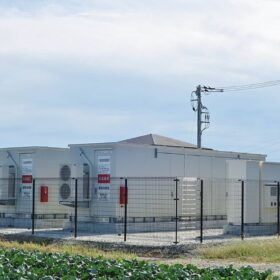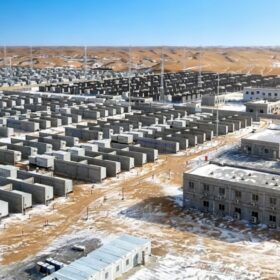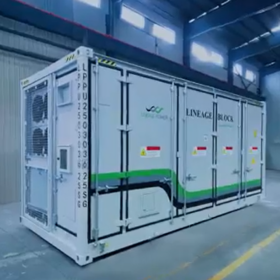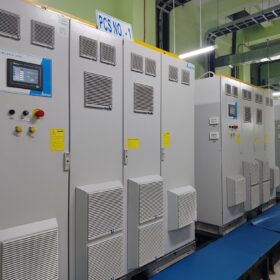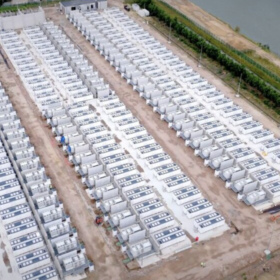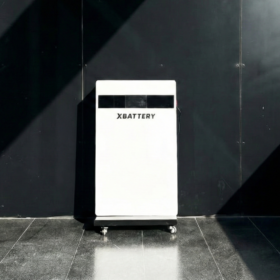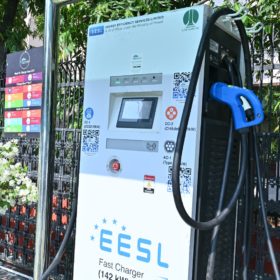Premier Energies buys 51% stake in EPC JV with BA Prerna Renewables
Indian solar manufacturer Premier Energies has completed the acquisition of 104,550 equity shares of HeliosAnthos Energies, securing 51% of the company’s paid-up equity share capital. HeliosAnthos Energies is a joint venture between Premier Energies and BA Prerna Renewables, formed to expand Premier’s presence in the engineering, procurement and construction (EPC) segment of renewable energy projects.
US energy storage shatters records with 58 GWh installed in 2025
The Solar Energy Industries Association (SEIA) and Benchmark Mineral Intelligence say US battery installations reached a record 57.6 GWh in 2025, up 30% year on year, as the industry enters what they describe as a new phase of sustained, high-volume deployment.
The Hydrogen Stream: India launches Hydrogen Valley Innovation Cluster under National Green Hydrogen Mission
India has launched the Hydrogen Valley Innovation Cluster under the National Green Hydrogen Mission to accelerate the transition of green hydrogen technologies from laboratory research to industrial deployment.
Vanadium flow and lithium-ion combine in world’s largest grid-forming hybrid storage plant in China
China brings online 300 MW/1,200 MWh grid-forming energy storage facility in Inner Mongolia, integrating lithium-ion and vanadium flow battery technologies.
Pace Digitek’s arm Lineage Power delivers 100th BESS container
Lineage Power, the energy storage arm of Pace Digitek Ltd, has delivered its 100th containerized battery energy storage system (BESS).
Delta Electronics deploys 6.4 MWh/4 MW battery storage solution for India’s first underground metro
Kolkata Metro has commissioned a 6.4 MWh/4 MW battery energy storage system (BESS) at the Central station of its Blue Line, setting a new benchmark for large-scale battery storage adoption in metro networks. Executed by Delta Electronics India, the system features all critical components designed and manufactured in-house, including the power conversion system, energy management system and battery racks.
SolarPower Europe issues due diligence guide for PV-BESS
SolarPower Europe has released new technical due diligence guidelines for utility-scale solar-plus-storage projects, covering risk, engineering and lifecycle standards for co-located PV and battery systems.
Xbattery launches 5 kWh scalable energy storage system for residential, small office use
Hyderabad-based startup Xbattery has launched a 5 kWh scalable energy storage system (ESS) for homes and small offices. The lithium iron phosphate (LFP)-based system can be scaled up to 15 kWh by adding additional battery units.
India’s EV sector secured INR 2.23 lakh crore in investments, just 18% of the capital needed by 2030: IEEFA
IEEFA states that bridging the INR 10.3 lakh crore investment gap over the next five years will require moving beyond traditional subsidy-led approaches toward structural risk-sharing mechanisms that lower the cost of credit and attract private capital in the electric mobility sector.
Mexico mandates social impact reviews for BESS projects
New rules from Mexico’s Secretaría de Energía require battery energy storage systems (BESS) to submit social impact assessments for the first time, with stricter obligations above 250 MWh.

